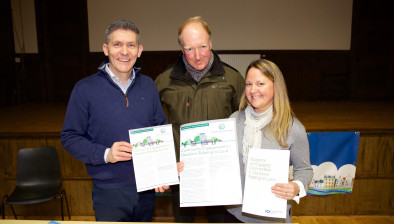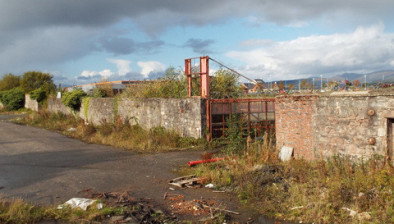Scottish Land Commission guidance puts local people at the heart of land decisions

Emma Cooper
The Scottish Land Commission is taking a ground-breaking step to ensure the well-being of local communities by introducing fresh guidelines that emphasise the importance of community-centred land use decisions.
As demand for rural land in Scotland continues to rise, driven in part by the emerging potential of natural capital, this new, practical guidance provides a set of fundamental principles for landowners to follow. These principles are designed to ensure that communities directly benefit from the evolving value and use of land.
The important new guidance outlines a series of key principles landowners should follow to ensure communities benefit directly from new value and land use change.
The major piece of work from the Scottish Land Commission entitled, ‘Delivering Community Benefits from Land’ is the first guidance on the subject and looks to guide government, landowners and investors to be able to deliver in practice on the Scottish Government’s clear expectation that investment in Scotland’s land should deliver community benefit.
The guidance follows the Scottish Land Commission’s publication of policy recommendations on making a just transition, which include proposals to strengthen regulation of carbon and nature markets, build the requirement for community benefit into public grants and market frameworks and build greater capacity supporting communities to act.
Emma Cooper, head of land rights and responsibilities at the Scottish Land Commission, said: “Making the most of Scotland’s land means not only involving communities in decision-making about land, but also considering the many ways in which the community can benefit from the way land is owned, managed and used. This goes beyond engagement, to empowerment.
“Sustainable communities need affordable housing, quality jobs, local businesses, access to outdoor spaces and so much more – land is key to delivering this. With so much at stake, we believe that landowners and investors can no longer afford to see community benefits as an optional extra but as a priority when making decisions about land.
“We also know through our work that many land owners want to support local communities to achieve their needs and aspirations, but simply aren’t sure how to approach it. This guidance sets out practical ways this can be done.”
The guidance also features clear examples of land use that impacts communities directly and positively, delivering a range of benefits, from Tayvallich Initiative to Balcaskie Estate and Peatland ACTION.
Launching just after the Scottish Government’s commitment to develop a nature market framework, the guidance provides a definition on community benefits and sets out a range of opportunities for landowners, managers, communities and investors to deliver them.
The Scottish Government is committed to seeking private investment in land to deliver its nature and climate goals and to strengthening the approach set out in its ‘interim principles for responsible investment in natural capital’.
As well as creating new risks in the concentration of land ownership and increasing land values, this land use change also opens up opportunities to create better models in which communities have more agency in decisions and ownership. Clarity on what is expected in relation to community benefits is one part of realising this opportunity.
Emma Cooper added: “As we see increasing demand in land acquisition for nature and climate action, potentially backed by significant private finance investment, it is critical that community benefit should be built in as a normal part of the approach by both aspiring and existing landowners. Much can be done in practice now, even while wider policy and market frameworks develop.”
The new guidance follows on from the Scottish Land Commission’s recently launched three-year strategic plan, which focuses on people, power and prosperity and how those key elements can help Scotland on its land reform journey.
The public body’s vision is that the ownership and use of land supports thriving people and places.









